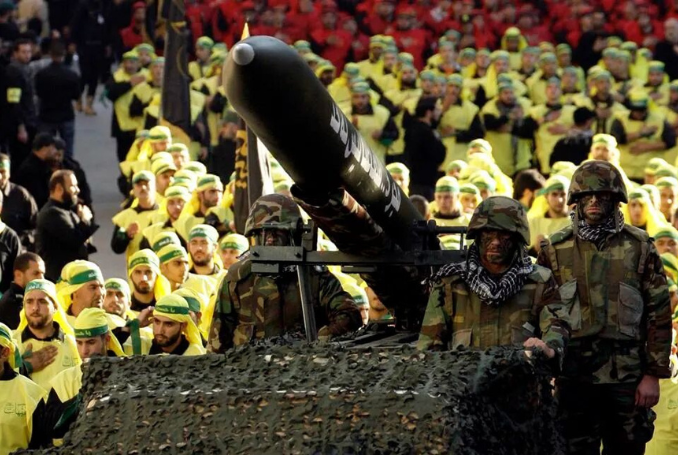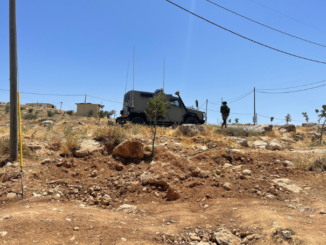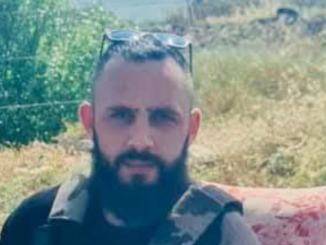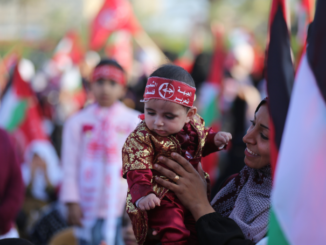
The Hezbollah official dismissed Israel’s claims that it had destroyed a significant portion of Hezbollah’s missile capabilities as a “complete lie”.
The Lebanese movement Hezbollah affirmed on Tuesday that the group is not intimidated by the Israeli threat to assassinate the newly-appointed Secretary-General Sheikh Naim Qassem, also debunking Tel Aviv’s allegations regarding the party’s missile power.
Mahmoud Qamati, the Deputy Head of the Political Council of Hezbollah, said in an interview with Al-Jazeera that the Israeli “implicit and clear” threat “does not intimidate us and is not accountable at all”.
The Hezbollah official dismissed Israel’s claims that it had destroyed a significant portion of Hezbollah’s missile capabilities as a “complete lie”
Qamati’s declaration came in response to Israel’s Defense Minister Yoav Gallant’s announcement that Qassem’s appointment is a “temporary appointment that will not last long”, insinuating a possible assassination attempt.
“We are a nation that does not fear martyrdom and when one among us accepts to assume a leadership position, he decides to be a martyr,” Qamati affirmed.
He stressed that Sheikh Naim Qassem is well aware of the dangers surrounding him and does not fear Israeli threats.
Discussing Qassem’s appointment as the new secretary-general, Qamati told Al-Jazeera that the decision was not linked to any political development but rather to an established international process within the party for selecting its leader.
He also said that Sheikh Naim Qassem is a historical leadership figure, and was the companion of late Hassan Nasrallah, who was assassinated on September 27 by Israel in the southern district of Beirut.
“Hezbollah’s leadership was a collective leadership and it still is the same today,” he asserted, while stating that the secretary-general’s role is to implement the policies and decisions made by the Shura Council.
Untouched Missile Stockpile
The Hezbollah official debunked Israeli claims suggesting that only 20 percent of the party’s missile capacity remains intact.
He described these allegations as “exaggerated and a complete lie,” adding: “We tell the enemy that we have not yet used our full missile capabilities”.
Although the official declined to specify what portion of Hezbollah’s missile capacity was impacted by Israeli strikes on Lebanon, he assured that “Hezbollah’s missile stockpile can last for a long time and deliver severe blows to the Israeli depth, up to 130, 140 and 145 kilometers.”
Tunnel Ambushes Challenge Israeli Forces – Israeli Colonel Warns of Hezbollah’s Increasing Power
No Negotiations under Fire
In response to the proposed diplomatic efforts for a ceasefire, the deputy head of Hezbollah’s political council told Al-Jazeera that the party is not currently engaged in any negotiations, confirming that the resistance movement has not received “any project or political initiative officially.”
He reiterated that, for now, Hezbollah’s priority remains in the field, with the Lebanese party relying on Speaker of Parliament, Nabih Berri, and Lebanese officials to formulate a political position.
“Hezbollah does not accept any negotiations under fire… and let the aggression stop and we are ready to discuss all political issues,” Qamati stressed.
War on Lebanon
Since the start of the Israeli war on Gaza, on October 7, 2023, the Lebanese movement Hezbollah has engaged directly, but relatively in a limited way in the war against the Israeli occupation.
Israel escalated its aggression with the cyber-terror attacks on September 17 and 18, which claimed the lives of at least 37 people including children, and injured around 3000 others.
Hezbollah’s Evolving Tactics and Arsenal Challenge Israel’s Military Superiority – WSJ
This went hand in hand with a series of assassinations of Hezbollah leaders, including that of the Secretary-General of the resistance party Hassan Nasrallah on September 27.
These developments coincided with unprecedented bombings and airstrikes by Israel’s army on different cities across Lebanon particularly in the south, Bekaa and the southern district of Beirut.
The Lebanese Ministry of Health announced on October 29 that 2,787 Lebanese were killed and 12,7725 were injured since the beginning of the Israeli aggression on Lebanon.
The Lebanese Government Emergency Committee announced on October 29 that the number of shelters had reached 1,100 centers with maximum capacity.
The Head of the committee, Minister of Environment Nasser Yassin revealed that the total number of displaced people exceeds 1.2 million.
According to the committee, 355,910 Syrian nationals and 167,295 Lebanese nationals crossed into Syrian territory from September 23 to October 29.
(AJA, PC)










Be the first to comment